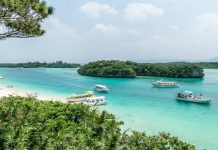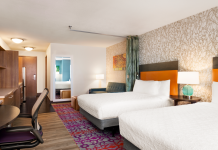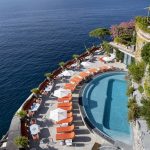In 1967, the first overwater bungalows emerged from a practical need rather than an innovative vision. Three Americans, Jay Carlisle, Hugh Kelley, and Donald McCallum, originally set out to establish vanilla farms in Tahiti but pivoted to hospitality when their land proved unsuitable. Their resort, Bali Hai, on the island of Moorea, featured four-room accommodations, including three pioneering overwater bungalows.
These bungalows, inspired by traditional Tahitian fishing huts, marked the inception of a now-iconic trend in luxury travel. Initially priced at $240 per day, they offered guests the unique experience of falling asleep to the soothing sounds of the ocean and waking up to the opportunity to dive directly into its waters. Contrary to expectations, they quickly became immensely popular, prompting the Bali Hai Boys to expand their concept to their other properties and inspiring imitations across French Polynesia.
Over the decades, the humble overwater bungalow has undergone a remarkable transformation. What began as simple structures with thatched roofs and basic amenities has evolved into opulent villas boasting multi-story water slides, infinity pools, and personalized butler services. Today, these accommodations can fetch upwards of $8,000 per night at some of the world's most exclusive resorts, serving as the ultimate status symbol for luxury travelers.
Despite their extravagant facades, overwater bungalows remain deeply rooted in their origins. Vaihiria Kelley, daughter of one of the Bali Hai Boys, reminisces about her father's pioneering vision and the impact it had on the tourism landscape of French Polynesia. While the original resort on Raiatea may have closed its doors, the legacy of the overwater bungalow lives on through the approximately 250 resorts worldwide that offer these coveted accommodations.
In contrast to the lavishness of overwater bungalows, there exists a spectrum of accommodations catering to different budgets and preferences. While overwater villas represent the epitome of luxury, budget travelers can still find comfortable and affordable options in traditional land-based resorts. These accommodations may lack the extravagant amenities of their overwater counterparts but offer a more accessible entry point to experiencing the natural beauty and cultural richness of destinations like Tahiti.
As the allure of overwater bungalows continues to captivate travelers worldwide, their evolution serves as a testament to the power of innovation driven by necessity. From humble beginnings to iconic symbols of luxury, these structures have transcended their original purpose to become enduring icons of indulgence and escapism in the realm of travel and hospitality.
























